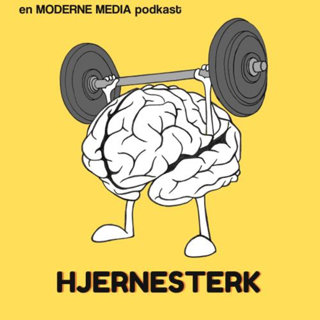
The BIG Magnesium Mistake
If you think that magnesium’s not working, you could be taking it wrong. Find out about the common mistakes people make with magnesium supplements. There are so many benefits of magnesium—it's the most important mineral, so make sure you’re taking it correctly. Magnesium is involved in hundreds of biochemical reactions that help prevent common problems such as atrial fibrillation, high blood pressure, insomnia, heart disease, leg cramps, and fatigue. Many people are magnesium deficient, but it’s almost impossible to test! Only 1% of your magnesium is in the blood—the rest is inside the cells. Some common causes of magnesium deficiency include: •Genetic weakness •Low stomach acid •Prediabetes or diabetes Magnesium depends on vitamin D, which many people have a genetic problem with. Vitamin D deficiency inhibits the proper function of magnesium in the body. You need a minimum of 10,000 IU of vitamin D daily. Magnesium glycinate has an 80% absorption rate and also helps with sleep. Magnesium controls calcium, so you likely have excess calcium if you're magnesium deficient. Too much calcium causes cramping in the calves, high blood pressure, and arrhythmias. Smoking, alcohol, soda, refined sugars, starches, and certain medications can all contribute to a magnesium deficiency. Leafy greens, pumpkin seeds, chocolate, and nuts are the best food sources of magnesium. You won't see results if you don’t give magnesium enough time to work. It takes at least 1 to 3 months to see results from magnesium. Digestive issues like constipation or diarrhea can greatly affect your ability to absorb magnesium. Chronic stress and exercise can increase your magnesium requirements. You can increase magnesium absorption by spreading your doses throughout the day rather than taking it all at once. Try drinking apple cider vinegar mixed with water to acidify the stomach and increase magnesium absorption.
22 Des 20246min

What Would Happen If You Chewed ONE Clove Daily
What would happen if you chewed one clove daily for 7 days? I’m sure you’ve heard of the benefits of clove for teeth and gums, but there’s so much more to this fascinating spice. In this video, we’re going to talk about the many health benefits of cloves. DATA: https://onlinelibrary.wiley.com/doi/a... https://pmc.ncbi.nlm.nih.gov/articles... https://pmc.ncbi.nlm.nih.gov/articles... https://pubmed.ncbi.nlm.nih.gov/16235... https://pmc.ncbi.nlm.nih.gov/articles... https://pmc.ncbi.nlm.nih.gov/articles... https://www.cambridge.org/core/journa... https://www.sciencedaily.com/releases... https://pubmed.ncbi.nlm.nih.gov/28524... Clove can act as a natural painkiller, especially for a toothache. Eugenol, the chemical found naturally in clove, can mimic the effects of lidocaine without any side effects. Clove doesn’t just work for toothaches. It may work systematically for many other inflammatory conditions. Clove can be beneficial for arthritis, swelling, and joint pain. It mimics the effects of NSAIDs, such as ibuprofen. Cloves also have potent antimicrobial effects, even for antibiotic-resistant bacteria. It’s also beneficial against fungi, viruses, Candida, and parasites like malaria. It’s been shown to mimic the effects of antibiotics without harming good bacteria. Clove oil can break down biofilms so your immune system can destroy bacteria. Eugenol in clove starves pathogens of energy, preventing them from reproducing. Clove has also been shown to make insulin more sensitive, producing results similar to a mild form of Metformin. Here are a few more of the potential benefits of cloves: •Cancer-fighting properties •Detoxification of the liver •Blood-thinning effects •Boosts your mood •Eliminates gas and bloating •Higher ORAC scale (antioxidant scale) than blueberries •Decreases mucus •Improves bad breath For the benefits of cloves, chew one clove daily, use clove oil topically, or grind it and add it to a smoothie.
20 Des 20245min

7 Alarming Signs Your Blood Sugar Is Too High
When you overeat carbohydrates, your blood sugar rises, and insulin removes the sugar from the blood. Insulin also allows sugar to be used as fuel in the cell. Due to insulin resistance, many high blood sugar symptoms are related to low blood sugar and low sugar inside the cell. Here are 7 high blood sugar warning signs. 1. Excessive urination Waking up to urinate at night signifies a blood sugar problem and even a prediabetic situation. When you have too much sugar in the blood, it’s filtered by the kidneys and excreted in the urine. 2. Excessive thirst Excessive urination leads to water loss and excessive thirst. High blood sugar causes sodium retention, which your body tries to dilute. High blood glucose also contributes to potassium deficiency, which also increases thirst. 3. Skin changes Skin folds will often become darker due to excess glucose. 4. Brain fog and fatigue Many people have no idea this is a symptom of high blood sugar! High blood sugar starves the neurons. 5. Mood swings Irritability is often caused when your blood sugar that’s too high goes too low. A ketogenic diet can significantly improve mood issues. 6. Cravings Cravings will typically be for sugar and salty carbs. 7. Blurry eyes The lens of the eye becomes swollen, and the inside of the eye becomes reddened. Fixing the diet and lowering carbohydrates could help eliminate symptoms of high blood sugar within weeks. You’ll also want to increase glucagon to decrease insulin by consuming high-quality protein like red meat, fish, or eggs. An A1C test measures your blood sugar over 120 days. The higher the percentage of glycated hemoglobin you have, the more severe your diabetes is. If you’re on keto or the carnivore diet, you may notice that your A1C test is still high. This is because these diets extend the life of the red blood cells.
16 Des 20247min

Why Your Vitamins Are Not Working
You may be wondering, do I need to take vitamins? Your body needs around 180 nutrients, and it’s often difficult to satisfy these requirements, especially for vitamin D, magnesium, zinc, and vitamin B3. You can not always identify nutrient deficiencies in the blood. Low stomach acid interferes with vitamin and mineral absorption. If you have low stomach acid, you might also experience problems breaking down food with vitamin B12. Indigestion, heartburn, and SIBO are common symptoms of low stomach acid. Synthetic vitamins aren't the same as natural ones. Do not take synthetic vitamin B12 or B9! Some nutrients need other nutrients to function properly, so taking them in isolated forms rather than a complex can cause problems. Many vitamins contain fillers like maltodextrin that compete for nutrients such as vitamin C. Vitamin B1 is essential for breaking down sugar and carbs, so when you consume maltodextrin, it’s easy to become deficient. Poor diet could be a reason why vitamins aren’t working for you. If you’re diabetic, prediabetic, or have insulin resistance, vitamin absorption will be greatly inhibited. Fix this by going on a low-carb diet. Poor-quality supplements often contain calcium carbonate, which is limestone! Multivitamins with calcium and magnesium are poorly absorbed because these two minerals compete for absorption. Vitamin effectiveness is greatly influenced by dosage. The RDA for vitamin D3 is only 600 IU, but you need around 10,000 IU daily. If you have a chronic illness, you need therapeutic doses of vitamins, not small amounts. Always pay attention to the milligram dosage when choosing a supplement! Taking too little of a supplement significantly reduces vitamin absorption and effectiveness. Bruce Hollis Interview Video: ▶️ • Your Body Is BEGGING For Vitamin D!!
15 Des 20247min

STOP Taking Iron Supplements Now
DATA: https://pubmed.ncbi.nlm.nih.gov/22704... https://pubmed.ncbi.nlm.nih.gov/14580... https://pubmed.ncbi.nlm.nih.gov/15247... Too much iron over time can cause iron accumulation in your organs and tissues. Some people have a genetic problem that makes it difficult to eliminate iron if it accumulates too much. Potential side effects of too much iron include the following: 1. Cancer 2. Liver disease 3. Heart disease 4. Low testosterone 5. Low libido 6. Diabetes 7. Chronic fatigue syndrome 8. Infertility 9. Neurodegeneration 10. Inflammatory diseases Iron deficiency is one of the most common mineral deficiencies, but iron can also be dangerous if you’re getting too much. Iron toxicity is one of the most underdiagnosed and overlooked conditions. When you take iron supplements, you don't absorb very much. The excess iron accumulates in the digestive tract, causing constipation, nausea, diarrhea, bloating, and irritation of the colon. The type of iron in iron supplements feeds pathogens. Red meat is a better source of iron. Heme iron from red meat and fish is absorbed much more easily. It goes straight into the bloodstream. Red meat also has other nutrients like B vitamins, zinc, and selenium. High-quality protein also helps to balance iron. Many processed foods contain added iron in the forms of ferrous fumarate, ferrous sulfate, and ferrous gluconate. The most common sources of iron are supplements, fortification, and cooking with cast iron cookware. Liver damage will also cause you to accumulate iron. A lack of copper is a common cause of dysfunctional iron because copper helps control iron in the body. Many enzymes dependent on copper relate directly to the control of iron. The first enzyme involved with copper converts iron into a less accumulative and less toxic form. Copper also allows you to transport iron through the body. Copper is involved in a powerful antioxidant that reduces oxidation caused by iron! Glyphosate, antibiotics, high fructose corn syrup, and wheat products can cause copper deficiency. Iron deficiency anemia may really be iron dysfunctional anemia, which is often related to a copper deficiency. Oysters, shellfish, and organ meats are the best food sources of copper.
14 Des 20247min

How to Get Thick and Shiny Hair
Today, I’m going to tell you how to get thick and shiny hair naturally! Biotin is a B vitamin that many people take for thick, shiny hair. It can come from the diet, but it can also come from the gut microbiome. The good bacteria in your gut make biotin. This is why a common side effect of antibiotics is hair problems. When you stop taking biotin, you may notice that the problem comes right back, so it’s vital to address gut health when dealing with biotin deficiency. Liver and egg yolks are the best sources of biotin. Nutritional yeast and salmon also contain biotin. Alcohol, raw eggs, and magnesium deficiency can interfere with biotin absorption. Zinc and copper are essential for biotin absorption and function. Retinol, the active form of vitamin A, is only found in animal foods. Liver and egg yolks are the best sources, but you can also find vitamin A in shellfish and cod liver oil. Vitamin A helps control sebum, so it’s very beneficial for thick, shiny hair! For healthy hair, reduce your omega-6 fat intake and increase your omega-3s. Omega-3 fatty acids are vital for healthy hair. Fish oil and cod liver oil are excellent sources of omega-3s. L. reuteri is a microbe missing in 96% of the population. It increases sebum, which makes hair shiny, and it may also increase hair growth. Copper is used in many different enzymes, including the enzyme that helps prevent iron accumulation in your tissues. Iron is vital for hair growth, but we need the right balance. NPK fertilizer in our foods is a common cause of copper deficiency. If the grass is deficient in copper, the animals that eat the grass will also be deficient. Animals with copper deficiency have very dull hair. If this can happen to sheep and cows, it can definitely happen to us! Overconsumption of iron, often from fortified wheat products, can lock up your copper and contribute to copper deficiency. Other contributors to copper deficiency include high fructose corn syrup and high zinc intake. If you want healthy hair, add the following foods to your diet: •Fermented foods (i.e. kefir, sauerkraut, kimchi) •Liver •Egg yolks •Cod liver oil/cod liver •Organic foods •Trace minerals Soil, Grass and Cancer: https://www.amazon.com/Soil-Grass-Can...
13 Des 20247min

Do NOT Make These Mistakes (Especially After 50)
Simple choices could be the reason why you’re not healthy. These unhealthy habits can be especially problematic if you’re over 50. 1. Don’t take health advice from inexperienced people. 2. Don’t be too quick to accept a diagnosis. 3. Avoid solutions that create more problems. 4. Avoid excessive stress. The most important nutrient for people over 50 is vitamin D. Vitamin D influences 10% of your genes. You need at least 10,000 IU of vitamin D or more to produce a therapeutic effect. Doctors worldwide are using vitamin D3 for many health concerns, including autoimmune diseases, eye problems, and fibroids. Magnesium, zinc, and vitamin D work together in a synergistic relationship. Magnesium is vital for heart health and energy. Avoid calcium and iron supplements as you age. It’s very difficult to rid the body of excess iron. You don’t need to avoid salt! Opt for sea salt and make sure you’re getting plenty of potassium. Sodium deficiency can cause increased cortisol levels, which can interfere with sleep. Cholesterol is an essential building block of sex hormones, so you must get enough after menopause. Cholesterol is essential for our brain, bile salts, and other hormones. Butter, eggs, dairy, and shellfish are the best dietary sources of cholesterol. Focus on removing carbs from the diet and prioritizing quality protein. Grass-fed beef or lamb is the best source of protein. Frequent eating stimulates insulin, which is the root cause of many chronic illnesses, including high blood pressure, diabetes, and a fatty liver. Autoimmune diseases are related to low vitamin D and the microbes, viruses, and other pathogens that downgrade the vitamin D receptor. After severe stress or shock, your immune system becomes suppressed, leaving you vulnerable to autoimmune disease. It’s vital to understand the importance of the microbiome as an organ, especially when you’re over 50. When you take an antibiotic, your microbes don’t always return. Gut health supports immune function, neurotransmitter production, mood, cognitive function, digestion, nutrient production, sleep, and even protects us against cancer.
9 Des 202412min

The Benefit of Apple Cider Vinegar That NO ONE KNOWS
Recommended Apple Cider Vinegar: https://www.fairchildsvinegar.com/ Most people are familiar with the more popular benefits of apple cider vinegar, including the following: •Supports digestion •Decreases bloating •Improves indigestion and acid reflux •Supports healthy blood sugar levels •Helps make insulin more sensitive •Decreases a fatty liver •Decreases inflammation Both good bacteria and bad bacteria can go into a dormant state. Microbes in a dormant state are protected from many environmental stresses and chemicals, especially antibiotics. Dormant microbes can survive for decades or even thousands of years! A change in environment, like a change in pH, can wake good bacteria or cause them to go dormant. Most good bacteria thrive in an acidic environment. Apple cider vinegar acidifies the environment for good microbes. Things like kombucha, pickle juice, sauerkraut, and kimchi have similar effects. Certain microbes create butyrate, which helps with insulin resistance. These microbes thrive in an acidic environment. We have a synergistic relationship with the microbes in our gut. We provide a home, and they provide immune protection, help with digestion, vitamin production, and more. By making their environment more acidic, you help activate them. H. pylori releases ammonia, which alkalizes the stomach acid. This allows it to do its damage, causing ulcers in the stomach and small intestine. C. diff, E. coli, and salmonella go into a state of dormancy when the pH drops below 6. When your immune system is suppressed, bad bacteria can come out of dormancy. Antibiotics, stress, Prednisone, and vitamin D deficiency can all suppress the immune system and activate pathogenic microbes. Adequate vitamin D in amounts of at least 10,000 IU daily may help keep pathogenic microbes in remission. Try drinking 1 tablespoon of apple cider vinegar in a glass of water every evening with a straw to support your beneficial microbes. Fairchild’s Apple Cider Vinegar is an excellent option.
8 Des 20246min





















